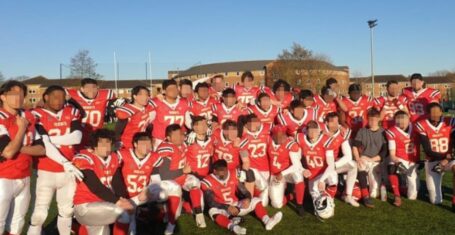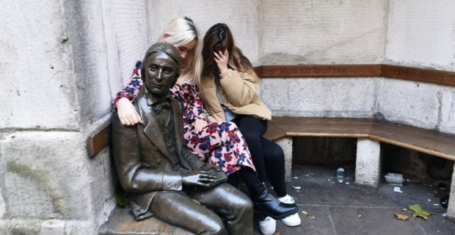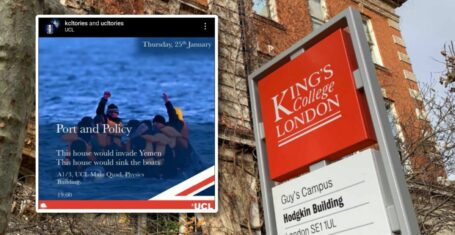
What it’s like to be a student with Covid-19
And yes, if you were wondering, I still can’t smell.
I’m Maya, a second-year Religion, Politics and Society student and within my third week back at King’s, I became one of the 306 King’s students that have caught Covid-19 since September. I started the term optimistic– I moved back to London living with three girls in a flat, so I was excited about the coming year. I tried to look past the fact that my whole course was online, and decided to make the best of a bad situation.
For the first three weeks, my flatmates and I enjoyed our Wednesday sports nights and weekends, whilst of course adhering to government guidance. I couldn’t fault my experience until that point: it felt like the country had made some progress with Covid-19. I was even starting to come to terms with online seminars… when I got a text from my flatmate: “I’ve got symptoms, so I’ve had a Covid test done.”
Suddenly, I was faced with the likelihood of isolating for two weeks. My first feeling was panic, which then settled during the three days I was left waiting for the test results (in that time, my other flatmate developed a cough). By the third day of waiting, I knew my fate was sealed. As we predicted, that evening, my flatmate’s test came back positive.
We were mainly concerned for one of my flatmates who is asthmatic, so we tried our best to stay away from her. We then also faced the task of tracing back everyone we’d come in close contact with, which is harder than you’d think! Anyone who’s had Covid-19 will know this stage.
Your anxiety heightens when you think about who you’ve been with, and if they have since met anyone high-risk, like their parents or grandparents. Thoughts like, “What if anyone reacts particularly badly to it?” or “What if my friend gave it to her dad?” stayed in my head for a good week.
That’s when the symptoms began
By my fourth day in isolation, my symptoms started. This is when it got difficult. Initially, I had a headache, which I could deal with until nighttime when it kept me from sleeping. The next symptom was feeling tired and weak. At night, I would feel nauseous, and in the day, I was in bed.
I managed to avoid the cough but feeling faint every time I stood up wasn’t great, either. My nausea persisted for around three days. It was just my luck that the centre didn’t register my test properly– I received my positive test five days after I had taken it.
For the remainder of my isolation, I felt very low energy and watched a lot of Netflix. We then started receiving our first calls from track and trace. They ask you various questions about your health and contact details, and call routinely to check up on you during your isolation. I got through the rest of the days living off Deliveroo and what was left in the fridge.
By this time, all four of us had received positive tests. A few weeks afterwards, my energy levels were still lower than before, and exercise now takes a much bigger toll on my body. One of my last symptoms was losing my sense of smell. It’s been close to a month and it still hasn’t come back.
How did King’s help?
King’s require you to fill out a self-isolation form if you or someone you know has tested positive for Covid-19. The form was quite straightforward, mainly asking practical questions, like if you’re awaiting test results or displaying symptoms.
It was after I had submitted my form that my department emailed me with resources to help, ranging from King’s advice to counselling. I was also pointed in the direction of applying to mitigating circumstances for coursework if necessary, and I was told to inform my personal tutor.
One lecturer, in particular, went above and beyond in her email to me, offering to assist me in any way I needed. I only ended up missing two seminars on a day when I couldn’t even get out of bed, let alone discuss politics. All of my lecturers were very understanding and didn’t expect my attendance for seminars.
What did I take from the experience?
There are, believe it or not, a few silver linings to my experience. Firstly, I likely won’t get Covid-19 again. I feel safer going about London– crowded tubes at the 10 pm curfew no longer scare me, and I’m more comfortable with close contact. I can also return home at Christmas knowing I’m less likely to spread the virus to my family, which gives me some peace of mind.
All in all, it has been a time of my life I will never forget. I bonded with my friends in a way that wouldn’t have been possible in a world without Coronavirus. As cliche as it sounds, I learnt a lot about myself, too. My resilience and coping mechanisms were tested. It was an experience my dad would call “character building.”
To anyone who is experiencing symptoms or has tested positive, don’t be afraid to ask for help. This year has been particularly tough on students. Ask your department for any academic help you may need, and reach out to the people who love you most.
Related stories recommended by this writer:
• King’s introduces Covid-19 testing plan for students
• The ultimate guide to takeaway pints in lockdown
• Swapping the Louvre for lockdown: King’s students one ‘year abroad from home’









































